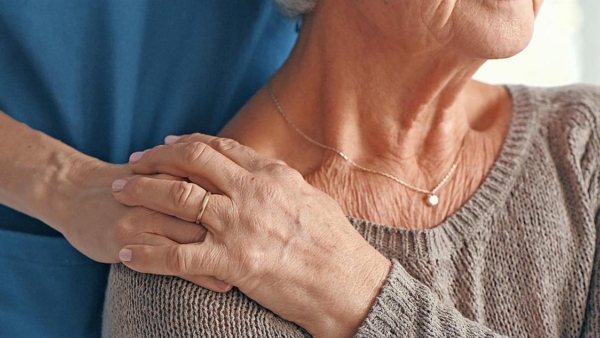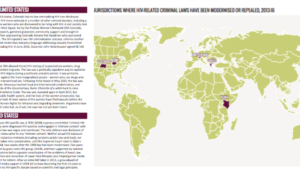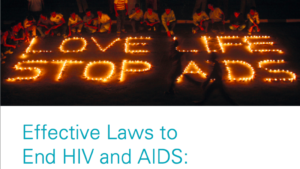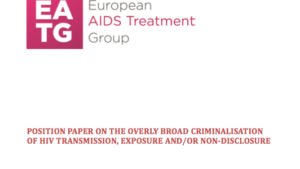Overview
Despite not having an HIV-specific criminal law, Switzerland has one of the highest rates of HIV criminalisation in Europe, with more than 70 cases of prosecutions for HIV non-disclosure, exposure or transmission since the first prosecution took place in 1988. The majority of defendants have been men and the great majority of prosecutions have related to heterosexual sex. A majority of these cases were prosecuted under Article 231, “maliciously transmitting a dangerous communicable human disease” of the Swiss Criminal Code, sometimes alongside Articles 122 and 125.
However, since 1 January 2016, Article 231 – as amended by the Epidemics Act of 2012 – can no longer apply, since the act must be proven to be malicious (i.e. having intent to transmit HIV or to cause harm someone).
Since 1999, HIV exposure (without transmission) has been treated as a failed attempt to transmit HIV under both Articles 122/125 as well as Article 231, and remains punishable. The judge may reduce the sentence in the case of a failed attempt.
The law of common assault or assault through negligence can also be used, although they have been rarely applied to HIV-related cases.
In addition, sharing used needles may also be prosecuted under Article 231 as well as under Articles 122/125.
The use of recommended prophylaxis (i.e. condoms, and more recently effective treatment) has been an absolute defence since the first known conviction in 1988. As long as one follows established safer sex guidelines such as those published by the Swiss Federal Office of Public Health, that person may not be prosecuted.
Low/undetectable viral load is not written into law but confirmed by well-established jurisprudence: de facto since 2009 and confirmed by a Federal Supreme Court obiter dictum in 2013. Whether the courts would also accept undetectability without antiretroviral treatment as a defence is unknown. Disclosure of HIV status to sexual partner is then not necessary.
In 2004, the Federal Supreme Court confirmed that an individual could consent to having unprotected sex with a person known to be HIV-positive. The conditions imposed in order for their consent to be considered valid were essentially the same as for informed consent in general. The person consenting has to be explicitly informed of the partner’s serological status and of the risk of transmission. However, consent itself would not have to be given explicitly and engaging in unprotected sex in the knowledge the person is HIV-positive is taken as giving consent.
Until 2013, the Swiss Federal Supreme Court had held that HIV infection was always presumed to be a serious assault given the serious health consequences subsequent to infection. A Federal Supreme Court decision of 2013 seemed to reverse this presumption and allowed for the possibility of a finding of the lesser charge of common assault. However, all convictions since 2013 have still been for serious assault.
Laws
Swiss Criminal Code of 21 December 1937 (SR 311.0)
(Status as of 1 July 2019)
“English is not an official language of the Swiss Confederation. This translation is provided for information purposes only and has no legal force.” (Warning by the Federal Chancellery)
Art. 231 Transmission of human diseases
- Any person who maliciously transmits a dangerous communicable human disease is liable to a custodial sentence of from one to five years.
Art. 122 Serious assault
Any person who intentionally inflicts a life-threatening injury on another,
any person who intentionally inflicts serious injury on the person, or on an important organ or limb of another, makes an important organ or limb unusable, makes another permanently unfit for work, infirm or mentally ill, or who disfigures the face of another badly and permanently,
any person who intentionally causes any other serious damage to the person or to the physical or mental health of another,
is liable to a custodial sentence of at least six months and no more than ten years.
Art. 123 Common assault
- Any person who wilfully causes injury to the person or the health of another in any other way is liable on complaint to a custodial sentence not exceeding three years or to a monetary penalty.
In minor cases, the court may impose a reduced penalty (Art. 48a).
- The penalty is a custodial sentence not exceeding three years or a monetary penalty, and the offender is prosecuted ex officio,
if he uses poison, a weapon or a dangerous object,
if he commits the act on a person, and in particular on a child, who is unable to defend himself, or is under his protection or in his care.
if he is the spouse of the victim and the act was committed during the marriage or up to one year after divorce
if he is the registered partner of the victim and the offence was committed during the period of the registered partnership or up to a year after its dissolution, or
if he is the heterosexual or homosexual partner of the victim provided they have at any time cohabited and the act was committed at that time or up to one year after separation.
Art. 125 Assault through negligence
1 Any person who causes injury to the person or the health of another through negligence is liable on complaint to a custodial sentence not exceeding three years or to a monetary penalty.1
2 If the injury is serious, the offender is prosecuted ex officio.
Criminal liability for attempts
Art. 22 Attempts
1 If, having embarked on committing a felony or misdemeanour, the offender does not complete the criminal act or if the result required to complete the act is not or cannot be achieved, the court may reduce the penalty.
2 If the offender fails to recognise through a serious lack of judgement that the act cannot under any circumstances be completed due to the nature of the objective or the means used to achieve it, no penalty is imposed.
Further resources
Analyzes the legal framework that has existed in Switzerland since 1988 and the main stages of case law.
In February 2006, Swiss experts issued a statement concluding that HIV-positive individuals who are on effective antiretroviral therapy (ART), and who do not have any sexually transmitted infections (STIs), cannot transmit HIV through sexual contact. The statement was authored by four of Switzerland's leading AIDS experts and was issued on behalf of the Swiss Federal Commission for HIV/AIDS.
Acknowledgements
HIV Justice Network's Positive Destinations
Visit the Switzerland page on Positive Destinations for information on regulations that restrict entry, stay, and residency based on HIV-positive status, as well as access to HIV treatment for non-nationals.










